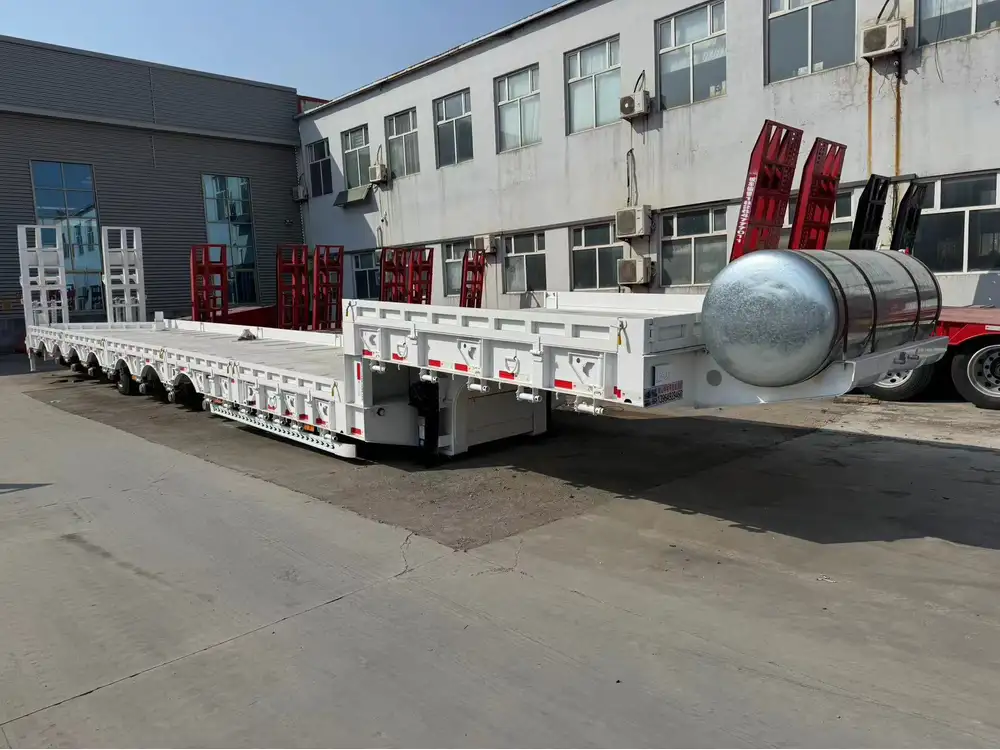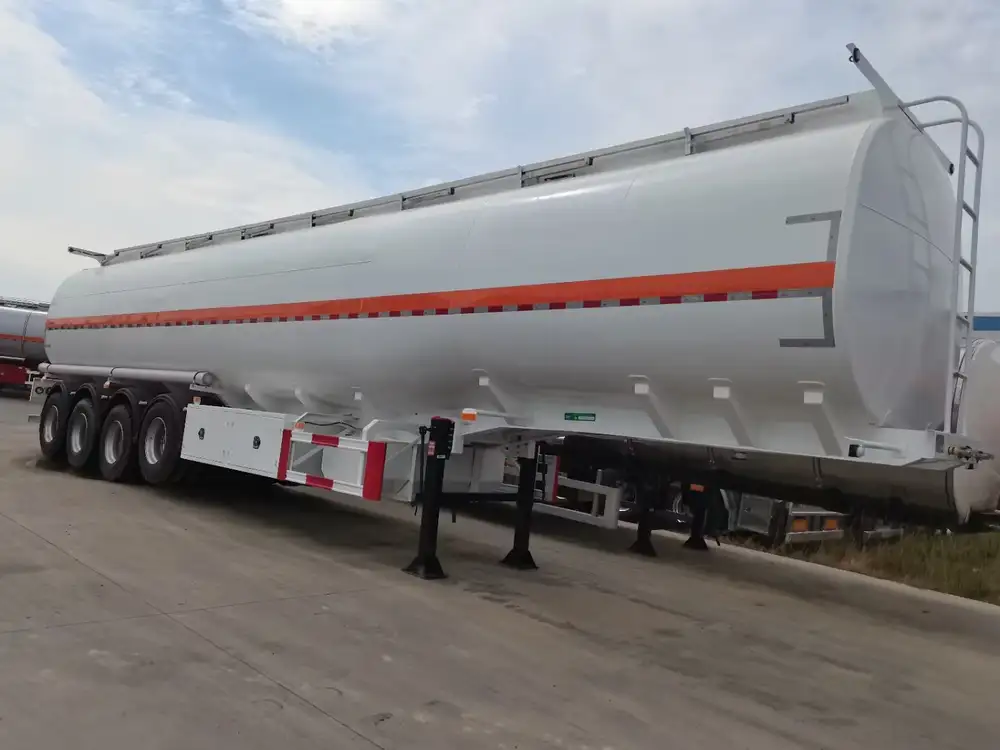When it comes to the efficient transport of materials, whether it’s gravel, dirt, or construction debris, the pairing of a dump trailer with the right truck is vital. This article has been crafted to assist you in understanding the nuances of selecting the appropriate truck size for your dump trailer. Our exploration will delve into several critical factors, ensuring your investment is sound and meets your hauling needs.
Understanding Dump Trailers: A Brief Overview
Dump trailers are versatile tools used across various industries, including construction, landscaping, and waste management. They allow for the easy loading, hauling, and unloading of different materials, making them indispensable in project execution. But before selecting a truck, it’s essential to understand the specifications and capabilities of your dump trailer.
common Types of Dump Trailers
| Type | Description |
|---|---|
| Single Axle | Suitable for lighter loads; often used in residential projects and small landscaping jobs. |
| Tandem Axle | Provides greater stability and capacity; ideal for larger loads in commercial contexts. |
| Tri-Axle | Designed for heavy-duty applications; allows for superior weight distribution and capacity. |
| Low Profile | Optimized for lower heights; useful for loading equipment and machinery. |

Key Specifications to Consider
- Weight Capacity: Understanding the maximum load capacity of both your dump trailer and truck is critical for efficiency and safety.
- Towing Capacity: This indicates how much weight your truck can legally and safely tow.
- Payload Considerations: This includes the weight of the trailer itself, the materials being transported, and any additional equipment.
Determining the Right Truck Size
Determining the right truck size for your dump trailer goes beyond mere calculations; it requires a thoughtful approach. Below are several parameters to consider:
1. Gross Vehicle Weight Rating (GVWR)
The GVWR is a crucial factor in determining the right truck. This rating provides the maximum weight your vehicle can safely handle, including its own weight, the trailer, and its cargo.

Calculating GVWR:
- Identify Trailer Weight: Check the specifications for your dump trailer to identify its weight.
- Add Payload: Determine your typical payload weight based on the materials you transport.
- Truck Weight: Note the weight of the truck itself.
For example, if your dump trailer weighs 3,000 pounds, your payload is 5,000 pounds, and your truck weighs 6,000 pounds, your total would be 14,000 pounds. Select a truck with a GVWR exceeding this total to ensure safety and legal compliance.
2. Towing Capacity
Trucks are rated for how much weight they can tow, and this varies by make and model. It is crucial to opt for a truck with a towing capacity that exceeds your trailer’s weight, especially when loaded.
| Truck Class | Towing Capacity (lbs) |
|---|---|
| Class 1 (0-6,000) | Up to 6,000 |
| Class 2 (6,001-10,000) | 6,000 – 10,000 |
| Class 3 (10,001-14,000) | 10,000 – 14,000 |
| Class 4 & 5 (14,001+) | 14,000+ |
Choosing the right class ensures you can handle not only the weight of the dump trailer but also any additional loads you may require on the job site.
3. Truck Type: Gas vs. Diesel
The type of engine is another vital consideration when matching your truck to a dump trailer.

Gas Engines:
- Typically suited for lighter-duty applications.
- Cost-effective and easier to maintain.
- Better for short hauls with less weight.
Diesel Engines:
- More powerful, providing higher torque for heavy loads.
- Ideal for extensive hauling, especially with larger dump trailers.
- Generally more fuel-efficient at high loads, making them better for long-haul transport.
4. Features to Look For
When selecting a truck, consider additional features that enhance towing capacity and safety:
- Transmission System: An automatic transmission can provide more control and ease of use, especially for novice drivers.
- Braking System: Ensure the truck is equipped with a powerful braking system, particularly if you plan to tow heavy loads over mountainous terrains.
- Suspension System: A quality suspension system that provides stability will enhance handling under load.

Legal Considerations
Before hitting the road, it’s crucial to be aware of the legal requirements involved. Various local and state laws dictate weight restrictions for trailers and trucks, making compliance essential to avoid fines and legal complications.
- Weight Limits: Many areas impose strict limits on how much weight can be towed, especially over certain types of roads.
- Licensing Requirements: Depending on the total combined weight, different licensing may be required. Class B and Class A commercial driver’s licenses could be necessary for certain configurations.
Frequently Asked Questions (FAQs)
What is the best truck for a dump trailer?
The best truck for a dump trailer will vary based on the size and weight of the trailer as well as the intended use. Heavy-duty trucks, such as Ford F-Series, RAM 2500/3500, or Chevrolet Silverado 2500HD/3500HD, often serve well for larger applications.

Can I use a regular pickup truck to tow a dump trailer?
Yes, but it primarily depends on the specifications of the pickup truck and the dump trailer. Ensure the pickup truck’s towing capacity meets or exceeds the trailer’s weight plus its load.
How do I know if my truck can tow a dump trailer?
Refer to the owner’s manual for your truck to find towing capacity information. The specification sheet for the dump trailer will also provide vital weight data. Always choose a truck with suitable towing capacity to handle the loaded weight of the trailer safely.
Can brake controllers be used with dump trailers?
Yes, brake controllers are often recommended and frequently required when towing heavier trailers, including dump trailers. These devices help maintain control during braking, reducing the strain on your towing vehicle.

Conclusion
Choosing the right size truck for your dump trailer is a crucial decision that can greatly affect efficiency, safety, and productivity. By evaluating the GVWR, towing capacity, truck type, and relevant legal considerations, you can make an informed choice that meets your operational requirements. Remember to account for factors such as payload and engine type to optimize your hauling capabilities.
Expanding your knowledge about the dynamics of truck and dump trailers will not only help in making the right decision but will also enhance your operational efficiency. Whether you’re a contractor, landscaper, or someone looking to haul materials, investing time in understanding these specifications ensures your endeavors will be successful and hassle-free.



